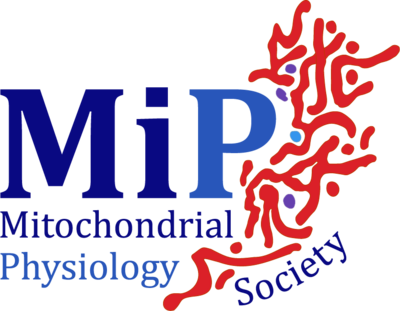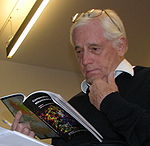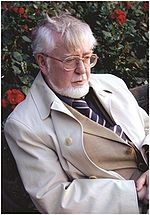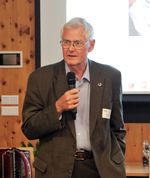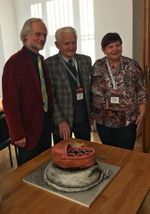Mitochondrial Physiology Society
News
Save the date
| More details | Date | Venue - Date - Event | |
|---|---|---|---|
| MiPschool Baton Rouge LA US 2025 | Conference website | 2025-05-18 | Baton Rouge, LA, US, 2025 May 18-23. MiPschool on Mitochondrial Physiology. |
MiPsociety
The MiPsociety became a legal body in 2011 continuing a tradition of rigorous mitochondrial bioenergetics; integrating molecular, cellular and organismic physiology and pathology.
The Mitochondrial Physiology Society (MiPsociety) was founded at the Third Conference on Mitochondrial Physiology (MiP2003), to organize MiP Conferences and Workshops. These MiPevents focus on common and cell-specific functions of mitochondria at molecular, organelle, cellular, tissue and organ levels. Thus we meet the increasing demands for integrating current developments in the methodologically and conceptually complex field of mitochondrial physiology. Mitochondrial research has undergone a dramatic renaissance, due to a whole series of discoveries revealing its central roles in cell death, disease pathology, aging, thermogenesis, oxidative stress, cell signalling, cellular regulation and cell bioenergetics. Functional genomics and proteomics is putting an urgent emphasis on integrative understanding of the link between genes/molecules and cellular/organisms functions. Because these topics require continuous technical advances there is also an emphasis on new methodological developments, quantitative methods of analysis in mitochondrial research including mathematical modeling, proteomics and the use of tools for measuring multiple parameters in an experiment. The Mitochondrial Physiology Society provides a multidisciplinary forum for high-level training courses, bringing together scientists working in divergent disciplines, to talk together about mitochondrial function and dysfunction, to resolve differences, to develop research agendas, to spread new knowledge and techniques, and to develop collaborations.
Until the foundation of MiPs, mitochondrial respiratory function was mainly studied in research laboratories specializing on the bioenergetics of isolated mitochondria and bacteria, energy transformation in transmembrane gradients and characterization of the various complexes of the electron transfer-pathway. These methods and concepts are expanded to applications on intact or permeablized cells and tissue preparations, and are widely used by groups with different research and clinical orientation, particularly in molecular cell signalling. MiPevents help to provide the expertise necessary for successful application of the techniques and concepts on mitochondrial physiology in the wider context of molecular and cell biology, exercise physiology, diagnosis of mitochondrial diseases, and evaluation of mitochondrial function in oxidative stress, ischemia-reperfusion, aging and degenerative diseases, and numerous areas of key-involvement of mitochondria.
- Until MiP2010, participants of a MiPconferences or other MiPevents (MiPsummer Schools) were enlisted as MiPmembers. The MiPsociety has become a legal body in 2011. MiPmembership is now becoming established on the basis of membership fees in line with other scientific organizations.
- To receive MiPcirculars, please join the MiPlist.
Become a MiPmember
MiPmember - Information about MiPmembership
MiPmembership list 2024
- MiPmembers - This list is sorted alphabetically - A * denotes lifetime membership.
MiPevents
- MiPevents focus on common and cell-specific functions of mitochondria at molecular, organelle, cellular, tissue and organ levels. Thus we meet the increasing demands for integrating current developments in the methodologically and conceptually complex field of mitochondrial physiology. Mitochondrial research has undergone a dramatic renaissance, due to a whole series of discoveries revealing its central roles in cell death, disease pathology, aging, thermogenesis, oxidative stress, cell signalling, cellular regulation and cell bioenergetics. Functional genomics and proteomics is putting an urgent emphasis on integrative understanding of the link between genes/molecules and cellular/organismic functions. Because these topics require continuous technical advances there is also an emphasis on new methodological developments, quantitative methods of analysis in mitochondrial research including mathematical modeling, proteomics and the use of tools for measuring multiple parameters in an experiment. The Mitochondrial Physiology Society provides a multidisciplinary forum for high-level training courses, bringing together scientists working in divergent disciplines, to talk together about mitochondrial function and dysfunction, to resolve differences, to develop research agendas, to spread new knowledge and techniques, and to develop collaborations. Until the foundation of MiP, mitochondrial respiratory function was mainly studied in research laboratories specializing on the bioenergetics of isolated mitochondria and bacteria, energy transformation in transmembrane gradients and characterization of the various complexes of the electron transfer-pathway. These methods and concepts are expanded to applications on intact or permeablized cells and tissue preparations, and are widely used by groups with different research and clinical orientation, particularly in molecular cell signalling. MiPevents help to provide the expertise necessary for successful application of the techniques and concepts on mitochondrial physiology in the wider context of molecular and cell biology, exercise physiology, diagnosis of mitochondrial diseases, and evaluation of mitochondrial function in oxidative stress, ischemia-reperfusion, aging and degenerative diseases, and numerous areas of key-involvement of mitochondria.
- All MiPconferences
- All MiPschools
Executive MiPcommittee
Last election: MiP2023 Obergurgl AT
- Committee members
- Erich Gnaiger, Innsbruck, Austria; Chair since 2003 - organizer of MiP2003 and 2005, MiPsummer 2007, 2008; MiP2010, 2013, MiP2014, MiPschool and MiP2023
- Christopher Axelrod, Baton Rouge, USA - Co-chair
- Steven C Hand, Baton Rouge, USA; Treasurer since 2010 - organizer of MiPschool 2009
- Adam Chicco, Fort Collins, USA
- Pablo Garcia-Roves, Barcelona, Spain
- Graham Holloway, Guelph, Canada
- Verena Laner, Innsbruck, Austria; General secretary since 2013. - organizer of MiP2013, MiP2014, MiP2023.
- Committee members
- Extended MiPboard members
- Brian Irving, Baton Rouge, USA
- Carlos Palmeira Coimbra, Portugal - organizer of MiPschool2019
- Lubos Sobotka, Hradec Kralove, Czech Republic
- Extended MiPboard members
MiPfellows
MiPfellowships are based on contributions to the MiPsociety and function to support the Executive MiPcommittee in promoting MiPsociety events and membership.
- Pushpa Sharma, Uniformed Services University of the Health Sciences, US
- Sameh Ali, Children’s Cancer Hospital, EG
Honorary members of the MiPsociety
| Nobel laureate Sir John Walker (Cambridge MBU, UK; Nobel prize 1997 in chemistry) in Trinity Hall at MiPsummer 2012 Cambridge (2012-07-10). He has joined the MiPsociety as the first Honorary Gentle Science Member of the Mitochondrial Physiology Society, following his presentation of The ATP Synthase at the MiPsummer School 2012 on July 10 in Trinity Hall, Cambridge. | |
| Prof. Vladimir P Skulachev was elected as the second 'Honorary Member of the MiPsociety' during MiP2015 at the occasion of his 80th birthday. | |
| Prof. Charles L Hoppel was elected as the third 'Honorary Member of the MiPsociety' during the MiPschool Obergurgl 2017. | |
| Dr. Drahota Zdenek was elected as the fourth 'Honorary Member of the MiPsociety' during the MiP2017/MitoEAGLE Hradec Kralove CZ. |
MiPsociety general assembly
- The MiPsociety general assembly takes place within the MiPconference event. The general assembly is made up of the MiPboard members, who are presented with a review of the previous year and who are empowered to make the key decision for the continuation of the society.
By-laws
- Registered in Innsbruck, Austria, as a non-governmental organization in 2011.
- Bylaws available as PDF for download.
Further information
Contact
- Erich Gnaiger (Chair), Verena Laner (General Secretary)
- Postal address
- Schöpfstr. 18
- 6020 Innsbruck, Austria
- society@mitophysiology.org



